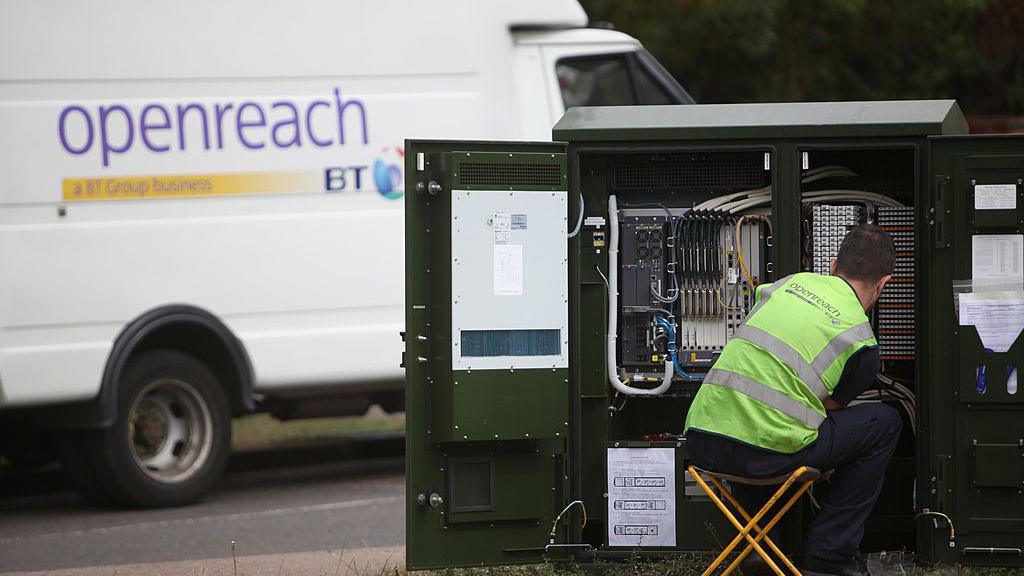First-time funding boost for broadband in Wales

The latest phase of the programme will include rural areas of Wales for the first time
- Published
Wales will benefit from funding to boost rural homes and businesses with poor internet connection for the first time, according to the UK government.
An investment of £800m will see about 312,000 premises in rural areas across Britain get access to gigabit-capable broadband.
The funding is part of a UK government project to modernise internet infrastructure.
The scheme aims to make the lightning-fast broadband accessible to the whole of the UK by 2030.
What it's like being a popstar with slow broadband
- Published28 June 2024
Slow broadband excluding many from life - report
- Published1 August 2022
Fibre plan halted in 'appalling' broadband village
- Published6 March 2022
The latest phase of the programme will also involve a deal with telecoms provider Openreach.
The UK government said mid and south-east Wales would benefit at first.
It said north and south-west Wales were "expected to benefit" from future contracts.
The new contracts worth £288m have already been signed for the firm to connect nearly 97,000 homes and businesses in England and Wales.
The Department for Science, Innovation and Technology (DSIT) said talks were under way to agree further contracts to connect more premises across England, Scotland and Wales.
The UK government's Technology Secretary Peter Kyle said "robust digital infrastructure is essential for growth, productivity and competitiveness".
Project Gigabit was originally launched under the previous Conservative government, but Labour said this new wave of programming marked a renewed push in the scheme from Sir Keir Starmer's government.
Digital Infrastructure Minister Sir Chris Bryant, the MP for Rhondda and Ogmore, said the new deal with Openreach "will make a real difference to communities".
Conservative shadow science secretary Andrew Griffith said: "Over 80% of Britain now has access to the very fastest internet thanks to the last Conservative government's £5bn investment in Project Gigabit, making it easier for millions of families to work and play online.
"Whilst it is good news that Labour is carrying on with the progress we made, we will work to hold them to account to ensure they do not recreate the digital divide they oversaw in Wales."